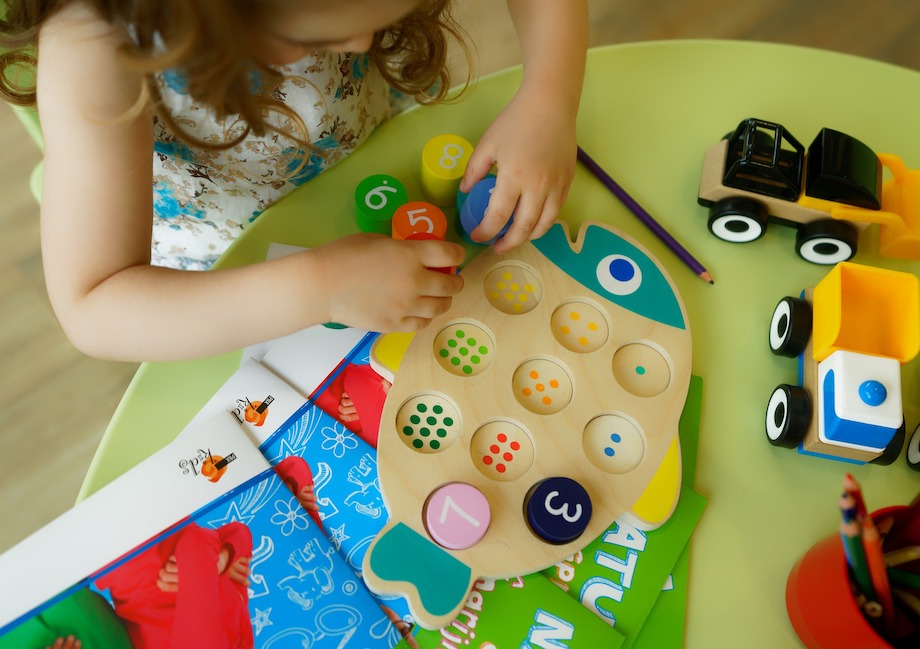
No hitting place
Discipline is important; children have always needed boundaries they can count on. Children need discipline to guide them, help them to fit in and to learn, and perhaps most importantly, to keep them safe. They need parents who will enforce those boundaries with loving guidance – with discipline, and discipline does not mean punishment, what it does mean is the establishing of appropriate behaviours, something all parents want.
There are many reasons why children behave inappropriately, and looking for patterns in our children’s behaviour can help us to understand why they occur. Learning to anticipate some of our children’s needs, and therefore avoid some of the simpler issues, is a huge component of parenting in these early years.
Reducing unwanted behaviour
When there is no simple solution, as in when a toddler is coming to terms with big family changes, the unwanted behaviours are harder to deal with. A child who is feeling threatened about where they fit in to their new family needs to be handled with love and compassion. If they are behaving badly, then that behaviour can’t be ignored, but we can be sensitive about how to help the child cope better – which will in turn help the unwanted behaviour to diminish.
It can be very effective to reflect back to your child what you think they may be feeling, “Our new baby cries a lot doesn’t she? I bet that makes you feel angry sometimes”. You can’t force your child to like a new sibling, but they must know in no uncertain terms that it’s not okay to upset or harm the baby in any way either. Don’t let your child sit on bottled up anger, let them know its okay to tell you how they are feeling.
Accentuating the positive
Some parents have had success by constantly reminding their child throughout the day that they are loved. It does sound strange, and can feel very strange to do, but telling our children that we love them should be the most natural thing in the world. Particularly when they are feeling vulnerable. Whenever you think of it, say it. For some children, the reassurance that this provides is priceless, and has a flow on effect to their behaviour.
As parents, sometimes we are so keen to have well disciplined children that we pick on the wrong issues, and make life a lot more difficult than it needs to be. It’s a good idea to pick your battles with little ones. Before you react to something your child has done, stop and ask yourself, ‘does this really matter?’ Have a few rules – important ones that you will stick to every single time, rather than too many rules that you just can’t keep up with, and be consistent about. It’s the difference between making big deal about your child finishing all their vegetables, or saving it for when they need to learn to be more gentle with the new baby, or to hold your hand crossing the road.
A lot of unwanted behaviour is attention seeking, and not all attention seeking behaviour is inappropriate. Often when children seek attention in this way, it is because they genuinely need more attention than they are getting
If the unwanted behaviour is swearing, then sometimes ignoring it for long enough can work well. If that doesn’t work for you then don’t be afraid to tell them exactly which words are not okay. By not actually saying the words, you give them more power and glamour, but if you say the word too – then you take all the fun out of it, “We don’t say bugger. I don’t like it”. Of course, if your child hears you say them in other contexts, then you’ll have a hard job eliminating swearwords.
Being consistent
Children will push our limits just to see that those limits are still there. The more consistent we are with enforcing those limits, the less severely and less often they will be tested. Children learn about trust in this way, they need to know that their parents will follow the rules too, and that you mean what you say.
Children have their own unique needs for how discipline should be handled. Even within families, children cannot always be disciplined in the same manner. For some children it is enough to simply know that Mum or Dad is not pleased with what they have done. For the very sensitive or vulnerable child a stern look is enough. But more often than that, our children need more, and that’s when it gets tough.
When we are under stress and unsure how to handle difficult behaviour, we tend to revert back to how our own parents disciplined us. For many in this generation, that means smacking. Many parents today find themselves in a very difficult position where for the most part we understand that smacking is not okay, and that it is both ineffective and dangerous – physically and emotionally. But without smacking we feel powerless as to how to effectively guide our children’s behaviour. Sadly, many parents use smacking simply because they know of no other way, and they are mistakenly under the impression that no smacking means no discipline, which just simply, is not the case. There are many safe and loving ways to teach children the appropriate behaviours that we want from them. It takes patience and practise, and unlike smacking is both safe and effective, and will only strengthen the relationship you have with your child.
Bad behaviour, not bad children
Throughout the learning process, there are some very important things to keep in mind. Never withdraw love and affection from your child. It is the behaviour that is bad – not the child. As the parent, you are your child’s big, safe person. What you say and do matters more than anything else. If you cannot remain calm, then put distance between you and your child, put them somewhere safe – like their room, and put yourself somewhere quiet. Call a friend, have a cuppa. Children are vulnerable, and they are fragile.
Its hard to reason with an under five, but they do need to be told simply and directly that what they did is not okay. Save the long explanations – you are probably wasting your breath, and may only increase your own frustration when your child doesn’t understand.
Changing unwanted behaviours
Positive reinforcement is a great place to start. It means catching your child when they are doing the right thing, and praising that. Tell them simply and clearly what they are doing that you do like, “You are patting the cat so gently, that’s great”, “I like the way you are drawing on the paper – that’s the right place to draw” or “You put your toys away when I asked you to, that’s wonderful”. Most children find a big smile and some clear praise very rewarding.
Talk to your child as if you are expecting them to do the right thing, before they do; “I know you will be so gentle touching the baby, I like that” or “I know you can finish putting those toys away, you are good at that”. It’s a positive way of reminding your child what you want them to do, and so much more encouraging than; “Don’t be rough this time” or “You haven’t finished putting your toys away!”
Time out is a very popular method of managing behaviour, and can be used in a variety of ways. Sometimes time out is another room, and sometimes it is a set place in the room you are all in together. It can be a set length of time, or not. The common rule of thumb is that time out should be one minute for each year of the child’s age, but all children have different needs. Remember that time out is not a punishment; it is simply a way of everyone getting a little space. Your child may just need a short break from whatever else is happening around them. When they are ready to come back and join the family, welcome them, let them see that you are happy to see them back again.
Withdrawing privileges is another technique that has sparked controversies. I believe it is appropriate some of the time, particularly if a toy is being misused – it makes sense to remove that toy. But don’t say it if you don’t mean it.
For a specific behaviour modification, a reward chart can work well. For example, if the behaviour that you wish to modify is that you want your toddler to not hurt the cat, then set up a chart that rewards your child for being gentle with the cat. It can be as simple as a sticker put onto a sheet of paper, or a stamp on the hand for very little ones. If using a chart, you can have your child work towards a larger reward, like an outing or an inexpensive treat. In most cases, over time, the new behaviour becomes a habit, and the reward is no longer needed.
For most families discipline is a challenge at least some of the time. For a few families, discipline is a nightmare. If you feel that discipline is out of control in your home, then there are places you can call for help.
- Plunket line can help with over the phone support, particularly for very young children.
- CFYS has written information, guidelines that can be helpful to families struggling with using appropriate and safe discipline.
- The Ministry of Education has behaviour management specialists who can assess your child’s behaviour and help you to put in place a plan to establish appropriate behaviours.






